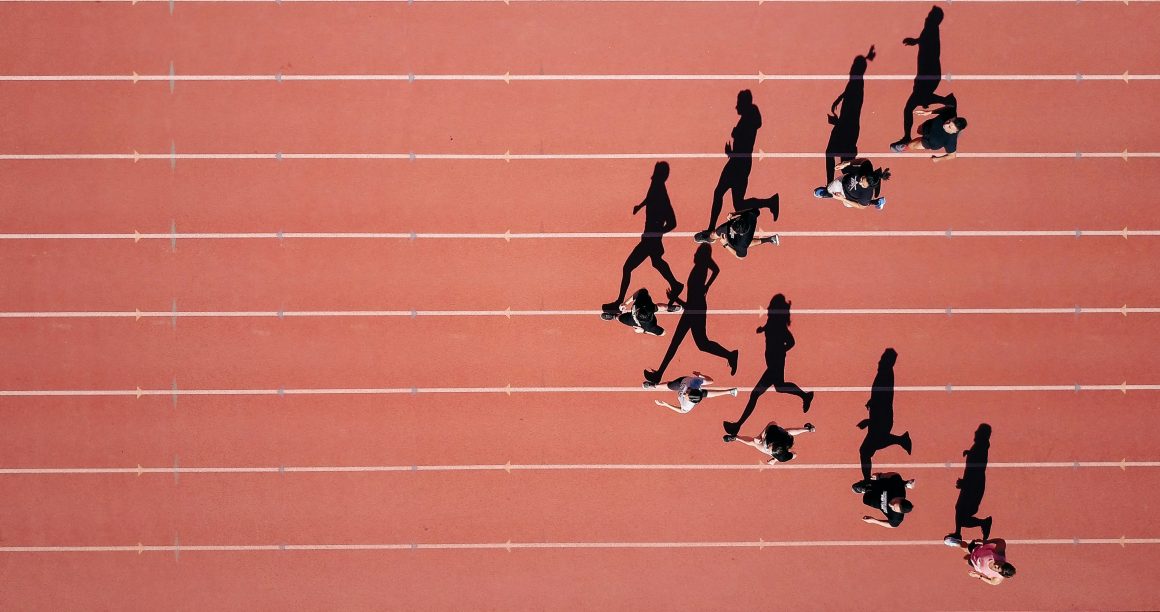The Paris Olympics 2024 are well underway, as athletes take to the floor to show off their talents with the hopes of winning gold.
But, although (to the avid watcher at home) these athletes make it look easy – behind the scenes, years of rigorous training has taken place to get them to where they are today.

However, in some cases, concerns have been raised over the relationships between coaches and athletes, with some allegations of abuse within some teams.
In 2020, it came to light that young athletes in Japan suffered physical, verbal and sexual abuse during training, according to a report by Human Rights Watch.
“The abuses include punching, slapping and excessive or insufficient food and water,” said HRW’s Minky Worden.
Meanwhile, in 2013, the Japanese Olympic Committee promised to take steps to eradicate abuse among its sports federations, external after an internal survey revealed more than 10% of its athletes had been victims of bullying or harassment.
It also cut funding to its judo federation for a time after coaches were found to have physically abused female athletes.
Abuse in sports in UK
However, abuse occurs within sports in the UK too, as according to a 2020 BBC report figures from UK Sport (the government agency responsible for investing money in the Olympics and Paralympics) saw 19 allegations of abuse of British world-class programme athletes.
Some of the allegations were against top coaches or support staff engaging in inappropriate sexual activity with an athlete, including two in 2019.
In the 2020 BBC article, Olympic medallist Nile Wilson told BBC Sport British gymnasts are treated like “pieces of meat”, while Olympians Becky and Ellie Downie said abusive behaviour in the sport had become “completely normalised”.
However, its not just elite sports where abuse occurs, and if you have suffered abuse within your sports team, you may be entitled to claim compensation.
Abuse in British Gymnastics
In 2020, the Whyte Review was commissioned following allegations of abuse and mistreatment within gymnastics in Britain.
When the findings were published in 2022, it said that issues of physical and emotional abuse within gymnastics in Britain were “systemic”.
It said it found that gymnast wellbeing and welfare “was not at the centre of British Gymnastics’ culture”, and athletes were made to train on injuries, punished for needing the toilet, sat on by coaches, shouted and sworn at and had their bags searched for food.
There was a sense, it added, that British Gymnastics had “not only failed to prevent or limit such behaviours but had condoned some of them in the pursuit of national and international competitive success”.
What did the report find?
The review, which focused on the period from August 2008 to August 2020, received more than 400 submissions, including 133 from current and former gymnasts, and conducted 190 interviews.
Of those 400-plus submissions:
- More than 40% described physically abusive behaviour towards gymnasts by coaches, including physical chastisement, inappropriate training on injury, overstretching to the point of distress and withholding food, water and access to the toilet.
- More than 50% reported an element of emotional abuse by coaches, such as swearing, name calling, use of belittling language and gaslighting.
- Some 30 submissions included allegations of sexual abuse, such as sexual assault, sexual remarks, inappropriate touching and kissing as a punishment.
- More than 25% included reference to excessive weight management.
Abuse in swimming
A review published this year found that a ‘toxic environment’ in swimming clubs in England has enabled abusive training practices and bullying to exist for years.
The review was initiated after the BBC revealed swimmers developed eating disorders and serious mental health problems due to abusive coaches.
Meanwhile, Olympic medallist Cassie Patten said change was vital, having felt “broken” after years of negative comments.
According to the BBC, multiple swimmers said they had been damaged by relentless bullying, humiliating public weigh-ins, fat-shaming and training on injuries.
Additionally, the review found excessive demands on child athletes meant there was an expectation to train when they were exhausted or injured, leading to many quitting the sport or suffering mental health issues.
One young swimmer said they would “frequently overwork myself to the point of vomiting or collapse to please my coach” while another said they had suffered post-traumatic stress disorder (PTSD) due to bullying suffered poolside as a child.
Many said they had been scared to speak out for fear of being treated worse or kicked off their team.
Since the review was published, the former head of Swim England, Jane Nickerson said she was “truly sorry” swimmers had suffered abuse and vowed to “do everything” to erase a culture of bullying.
What the review found
- Past and current experiences of bullying were “widely reported”, particularly by coaches or other child athletes, “leaving a lasting negative impact”
- Aggressive coaching styles including shouting, shaming and singling out individuals are “tolerated as expected behaviour” due to fear of repercussions
- Reports of sexual bullying, including lewd comments made to female swimmers
- Girls humiliated for putting on weight or being on their period
Abuse in football
A review into child sex abuse in football was published in 2021, after it came to light that hundreds of young players suffered abuse from coaches within football clubs between 1970 and 2005.
The 700-page, four-year Sheldon review said there were known to be “at least 240 suspects and 692 survivors” – with the actual number “likely to be far higher”.
Since 2016, there have been convictions for abusers such as Barry Bennell, Bob Higgins and George Ormond.
Some of the victims that spoke out about their abuse were Andy Woodward who was abused by Bennell between the ages of 11 and 15 at Crewe Alexandra academy, David Eatock, who was abused by George Ormond at Newcastle United and Former Manchester City, Liverpool and England player Paul Stewart who abused by youth coach Frank Roper.
The young victims said they were often invited to stay at their abuser’s house and were scared to speak out in case they suffered punishment or implications to their football career. They were also worried that no one would believe them.
The Sheldon Review made recommendations to the Football Association to implement such as introducing safeguarding training to young players, parents and FA board members.
If yourself or your child has been a victim of abuse within a sport setting, you may be entitled to claim compensation.
At Oakwood Solicitors we may be able to assist with your claim, so get in touch today.
Can I claim for abuse I have suffered during sporting activities or as a member of a sports club?
If you have suffered abuse in sport or at a sporting event, our solicitors are here to advise you. You may be eligible to claim compensation for the following:
- General damages – An award of money for the abuse/assaults themselves and for the pain, suffering and any psychological effects.
- Special damages – An award for any specific financial losses we can prove, such as loss of earnings or the cost(s) of any treatment or counselling.
- Aggravated damages – An additional award of money in certain cases where the court considers that there has been additional distress caused by the manner in which the abuse occurred.
What types of abuse in sport can I claim for?
The more high profile cases in the press are focused on sexual abuse and excessive training regimes.
Coaches and trainers are in a trusted position and are often looked up to by the sportspeople that they train. There has to be a relationship of trust, and if this is abused then it can have devastating effects.
Why has abuse in sport only really been highlighted in recent years?
Abuse of children, young people and adults is more talked about nowadays. There is greater awareness of the problem. Abuse in sport has only really come to the forefront in the media in more recent years. The first prominent cases surrounded abuse in football, in particular abuse by ex-coach Barry Bennell.
There are a number of reasons why it may be difficult for individuals abused in sport to disclose or report the abuse. These may include:
- Fear that they will not be believed – Coaches, trainers and other adults involved in sports and training may be held in high regard in their sport, and many victims may feel that they would not be believed if this reputation was challenged.
- Not realising that what is happening to them is abuse – Abuse does not always happen in a violent or obvious way, and may involve grooming.
- Fear of repercussions – Sporting circles can be very close-knit, and a young athlete may have devoted many years to their training. They may be concerned that reporting any abuse could have an effect on their sporting career.
Changes to the Sexual Offences Act designed to protect young people
A change to the law in 2020 means that those in positions of trust working with young people in sports cannot have relationships with those between the ages of 16-17, despite the legal age of consent being 16.
This change to the Sexual Offences Act 2003 was a welcome amendment in the campaign to protect young people.
How to make a claim?
If you or someone you know has suffered abuse in sport, you can contact us to discuss a claim.
We will advise you whether you are eligible to make a claim and the likely level of damages. If you decide to pursue the claim, we will keep you informed at every stage.
Who can make a claim?
If you suffered sexual or physical abuse or assault, you may be able to claim damages in the form of monetary compensation. It does not matter if the abuse occurred many years ago.
If the person who suffered abuse is under 18, the claim can be brought by a parent or close relative.
Does the law apply to amateur sports as well as elite teams?
Yes it does. The law applies equally, whether the abuse happened within an elite sports setting or amateur club or sports group.
How will my case be funded?
The majority of abuse claims are funded by a Conditional Fee Agreement (CFA), also known as a ‘no-win, no-fee’ agreement.
The way these agreements work means that you do not have to pay anything to us upfront. If you successfully recover damages, the majority of your costs will be paid by the other side.
You may have to contribute to costs out of any compensation recovered, but this will not be more than 25%.
We may advise you to take out After the Event (ATE) Insurance in your claim, depending on the case. If we consider that this should be taken out, we will discuss this in detail with you.
Any ATE premium will only be payable if you win and will not need to be paid until the end of the claim.
I have reported my claim to the police but they were unable to prosecute. Can I still make a claim?
The criminal process is different to the civil claims process.
There are different evidential burdens in both processes, so just because the police did not take your complaint any further, it does not mean that you cannot pursue a civil claim.
The police may still have evidence that will support your civil claim, even if it was not enough for a criminal prosecution.
Further reading
Claims against individuals – Oakwood Solicitors
Historic abuse claims – Oakwood Solicitors
WHAT TO DO NEXT
Get in touch today for a no-obligation consultation. Choose one of the methods on the right-hand side of this page, or call us on 0113 200 9720 to find out how we can help you.
 Jason Spence
Jason Spence